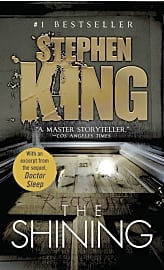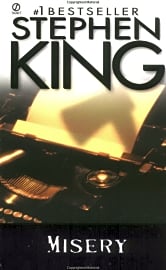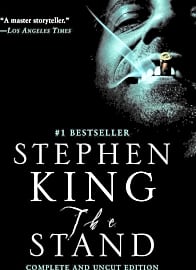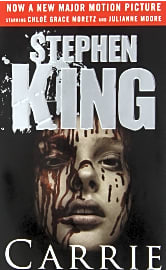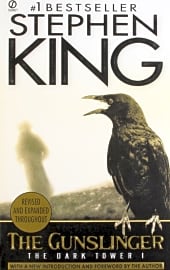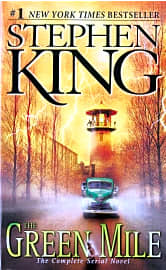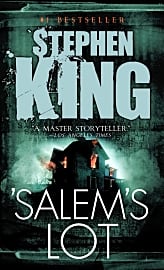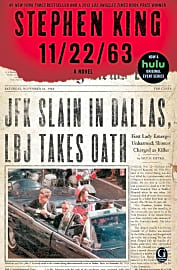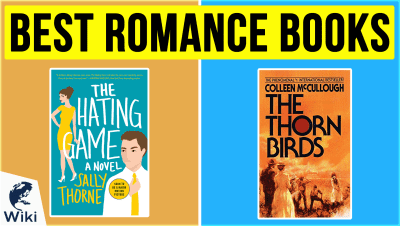The 10 Best Stephen King Books

This wiki has been updated 41 times since it was first published in March of 2015. Undoubtedly one of the most prolific (and quite possibly one of the greatest) writers of our generation, Stephen King's books offer much more variety than the horror stories for which he became famous. Cozy up in a safe spot with one of these novels and lose yourself in the imagination of an extraordinarily creative, talented, and haunting storyteller — that is, if you dare. When users buy our independently chosen editorial picks, we may earn commissions to help fund the Wiki.
Editor's Notes
March 14, 2019:
While many people often think King only writers horror stories, his works are much more varied, and we wanted to make sure we represented that on our list. Of course, he is still undoubtedly one of the best at telling scary stories too. For those who prefer not to be scared out of their wits when reading books, The Green Mile, 11/22/63, and The Gunslinger are your best options from this renowned author. The Stand can also be a good option too, as it has more of a sci-fi feeling, though there are definitely still some chilling undertones. Now, for the readers who have a free schedule and don't mind being too terrified to sleep for the following week, you can experience King in his finest form in It: Reprint edition, The Shining, and Pet Semetary. Misery: The Reissue Edition has a somewhat unique take on horror stories, as it almost feels like you are reading a book about the author himself. One can only imagine King what King must have been thinking while writing it.
What Makes Stephen King Such a Popular Author?
There are several reasons why Stephen King is one of the best-selling authors of all-time, not the least of which is that King is a highly-structured technician.
There are several reasons why Stephen King is one of the best-selling authors of all-time, not the least of which is that King is a highly-structured technician. King plays to our fears, whether those fears are represented via the apocalypse (The Stand, The Mist), unrighteous confinement (Rita Hayworth and The Shawshank Redemption, The Green Mile, Misery), isolation (Thinner, The Shining), or teenage angst (Carrie, The Body, The Girl Who Loved Tom Gordon). In every case, King presents these scenarios by way of characters who we can relate to. The struggles are common, and yet the conflicts remain other-worldly and bold.
The prose in a Stephen King book is well-written without feeling too dense or pretentiously wise. King's focus is on engaging the reader and drawing her in. He prioritizes page-turning over reading passages twice. Cynics might contend that Stephen King's work is entertaining without being refined. And yet it stands to reason that King authored On Writing, one of the most critically-acclaimed books ever published about literary craft and development of style.
Stephen King's work subverts motifs. King presents readers with a homicidal clown (It), for example, or a woman who has kidnapped a man (Misery). King presents us with a death-row messiah (The Green Mile). He intrigues readers by presenting them with a new way of thinking about a well-trodden path.
On top of all of this, Stephen King is prolific. He has written 56 novels, 11 short-story collections, and five nonfiction books. King was so prolific during the 1980s that he actually began publishing under a pseudonym (Richard Bachman) to provide himself more freedom and avoid any risk of overexposure.
Stephen King in Movies, Music, Television & More
Stephen King has been a household name for more than 40 years. Over that period he has extended his reach into various areas of pop culture. Most fans are aware that between 1992-2012 King played guitar in a literary rock band (i.e., The Rock Bottom Remainders) whose rotating line-up included: Dave Barry, Amy Tan, Sam Barry, Ridley Pearson, Scott Turow, Mitch Albom, Barbara Kingsolver, and Robert Fulghum (among others). But King is lesser known for having written the liner notes that appeared on the inside jacket of a Ramones tribute album entitled We're a Happy Family in 2003.
Around the same time, the heavy-metal band Slipknot began making sly references to Stephen King's novels in their lyrics.
In 1996, Stephen King collaborated with Michael Jackson on a 40-minute musical film entitled Ghosts. Around the same time, the heavy-metal band Slipknot began making sly references to Stephen King's novels in their lyrics.
Two of Stephen King's strongest novels from the 1970s - Carrie and The Shining - have been adapted into classic movies by auteur directors Brian De Palma and Stanley Kubrick, respectively. In fact, nearly 60 of Stephen King's novels or short stories have been adapted for film or television, with some of the more notable examples including: The Shawshank Redemption, Stand By Me, The Green Mile, Misery, and It. Stephen King has made cameo appearances (a la Stan Lee) in a lot of the movies that have been adapted from his work.
Stephen King voiced himself via a season 12 episode of The Simpsons entitled "Insane Clown Poppy." King's work has further been referenced via numerous Simpsons Halloween specials, along with individual episodes of The Office, Family Guy, It's Always Sunny In Philadelphia, and Stranger Things.
From July, 2003 to January, 2011, Stephen King wrote a pop-culture column for Entertainment Weekly that he called "The Pop of King."
Stephen King: A Life In Writing
Stephen King began writing as a child growing up in Durham, Maine. King was a fan of comic books and horror movies, and his interest was such that he and his brother wrote and published a homemade fanzine named Dave's Rag, which they distributed throughout local schools.
King had his first short stories published via sci-fi magazines while he was still a teenager. After graduating from the University of Maine, King submitted several pieces to popular men's publications while also working as an English teacher to pay the bills.
King's first significant break came when his novel Carrie got picked up by Doubleday in 1973.
King's first significant break came when his novel Carrie got picked up by Doubleday in 1973. King followed Carrie with the even more haunting Salem's Lot in 1975. Amidst meteoric success and the death of his mother, King began to drink heavily. Hoping for a transition, he temporarily moved his family to Boulder, Colorado, where he was inspired to write The Shining, which came followed by The Stand.
Throughout the eighties, King continued to ride a wave of success. He commenced working on The Dark Tower series, and he published Christine. King's early novels were being adapted into successful screenplays, meanwhile, and though his novels continued topping the best-seller lists, some of his more recent efforts were being met by a lukewarm response.
In 1999, Stephen King was struck by a minivan while walking along the shoulder of the road on Route 5 in rural Maine. He suffered a collapsed lung, multiple leg fractures, severe lacerations, and a broken hip (among other things). Upon recovering, King went back to work. He has been churning out consistent novels ever since.


